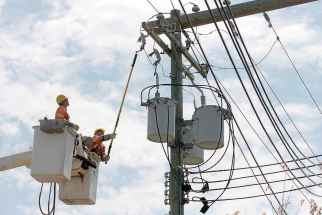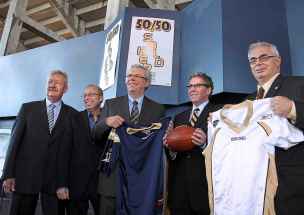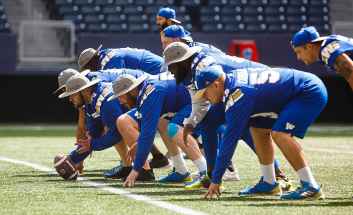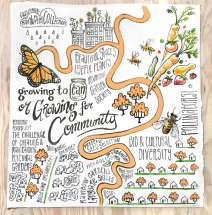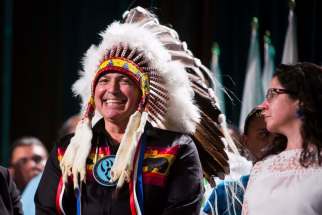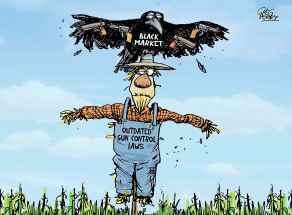First Nations Assembly votes for more of the same
Read this article for free:
or
Already have an account? Log in here »
To continue reading, please subscribe:
Monthly Digital Subscription
$0 for the first 4 weeks*
- Enjoy unlimited reading on winnipegfreepress.com
- Read the E-Edition, our digital replica newspaper
- Access News Break, our award-winning app
- Play interactive puzzles
*No charge for 4 weeks then price increases to the regular rate of $19.00 plus GST every four weeks. Offer available to new and qualified returning subscribers only. Cancel any time.
Monthly Digital Subscription
$4.75/week*
- Enjoy unlimited reading on winnipegfreepress.com
- Read the E-Edition, our digital replica newspaper
- Access News Break, our award-winning app
- Play interactive puzzles
*Billed as $19 plus GST every four weeks. Cancel any time.
To continue reading, please subscribe:
Add Free Press access to your Brandon Sun subscription for only an additional
$1 for the first 4 weeks*
*Your next subscription payment will increase by $1.00 and you will be charged $16.99 plus GST for four weeks. After four weeks, your payment will increase to $23.99 plus GST every four weeks.
Read unlimited articles for free today:
or
Already have an account? Log in here »
Hey there, time traveller!
This article was published 26/07/2018 (2698 days ago), so information in it may no longer be current.
The outcome was predictable, but the journey was interesting.
Perry Bellegarde was re-elected as national chief of the Assembly of First Nations (AFN) in Vancouver on Wednesday. This was expected. The AFN is a conservative, status-quo organization, and it has a federal government administering conservative, status-quo policies to First Nations.
Mr. Bellegarde represents business as usual. Unfortunately, this likely means more underfunding, mouldy houses, tainted water and flawed, aggressive resource policies most First Nations citizens do not want. But citizens don’t vote for the national chief, only chiefs do. Still, it was impossible to ignore how much the grassroots population wants the AFN to hear them.
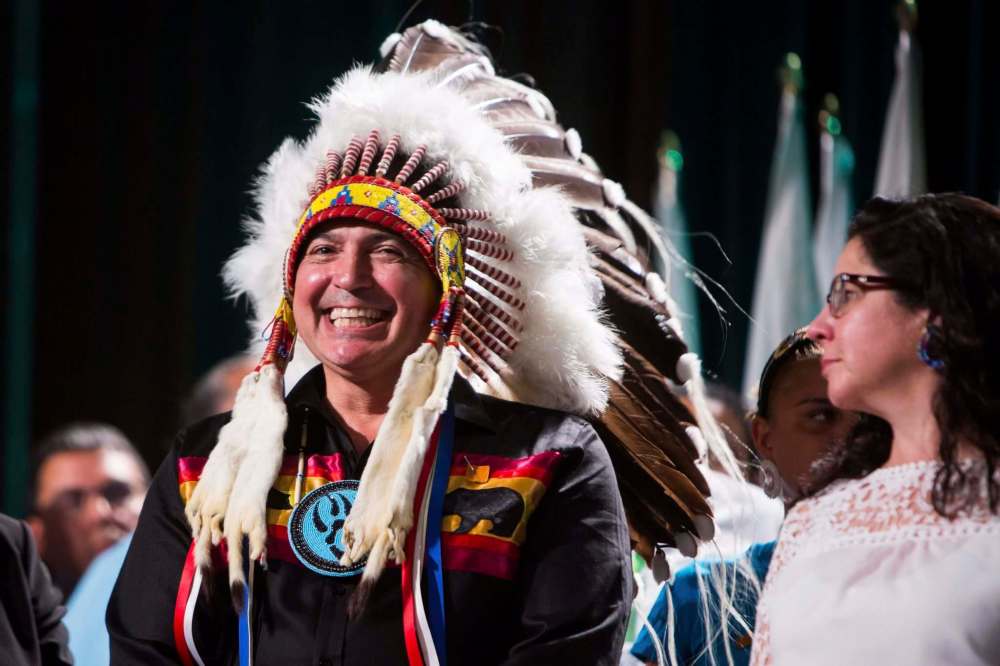
On the first day of the gathering, activists demanded the AFN pay attention to the Trans Mountain pipeline protest camps just a few hundred kilometres away. Then, the AFN Youth Council released a letter calling for chiefs to stop ignoring them, stating, “We want to prevent the inevitability of harm to our young people due to the inaction of our leaders.”
For the first time in history, the hashtag #AFNElection2018 trended. So, with one of the largest voter turnouts in memory, and with tens of thousands of eyes watching, the AFN chose more of the same. Now the AFN is left with the same old questions and issues.
How close should it work with an erratic federal government that refuses to stop controlling First Nations via the Indian Act, but claims to recognize Indigenous rights?
How can the AFN act in the interests of First Nations independence, but be so dependent on federal funding, recognition, and — to put it bluntly — interest? And how can the AFN claim to be speaking on behalf of First Nations people when it is a lobby group and not a government?
With real-life issues facing First Nations citizens — such as the broken Murdered and Missing Indigenous Women and Girls inquiry and upcoming controversial Indigenous-rights legislation — the AFN is perhaps looking more distanced than ever from First Nations communities.
In Manitoba, there are crucial issues the AFN should be taking a role in solving. There are thousands of Indigenous children in the child welfare system, incarceration rates exceeding 80 per cent for Indigenous youth and crushing poverty leading to suicide epidemics and sickness. These things deeply impact Manitoba’s health, justice and education systems.
Mr. Bellegarde has a lot of work to do, but his critics are growing. Most say Mr. Bellegarde’s biggest achievement — $17 billion in federal funding during his first term — has come because he has surrendered First Nations interests to Canada.
First Nations, his critics say, need a leader who commands respect from Canada. Mr. Bellegarde’s main opponent, Sheila North, observed, “We need a national chief who can sit at the table with the Liberals without becoming one.”
A sign of what’s to come may have come already on the morning of the AFN election when Crown-Indigenous Relations Minister Carolyn Bennett showed up and was seen speaking to chiefs in private rooms. Regardless of what she said, her appearance is tantamount to a boss showing up to speak to employees while they are voting for a union leader.
It was inappropriate interference. And certainly disrespectful. If the federal government believes what Prime Minister Justin Trudeau says, that Canada has a “nation-to-nation” relationship with First Nations, no Canadian leader should be influencing voters on the day of an election.
Or maybe Ms. Bennett knew exactly what she was doing. If that’s the case, the AFN seems destined to get even more of the same than predicted.


